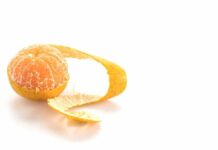Passionflower is a variety of exotic vine flower with curly purple or blue tentacle-like petals. One variety of passionflower, Passiflora incarnata, may help treat anxiety, insomnia, and pain.
In this article, learn about the possible benefits of passionflower supplements, as well as what the research says about its effectiveness.
What Is Passionflower?

Passionflower grows throughout South America and some parts of the southern United States. It is part of the Passiflora family, which also includes passion fruit.
People have used one variety of passionflower, Passiflora incarnata (P. incarnata), since the 16th century for medicinal purposes.
Some researchers believe that passionflower supplements may help treat anxiety, insomnia, and certain forms of pain because it may increase levels of gamma-aminobutyric acid (GABA), a chemical the brain makes to help regulate mood.
GABA is an inhibitory neurotransmitter — it counters neurotransmitters that cause excitement, and so it may have a calming effect.
Passionflower contains GABA. However, consuming GABA in this way does not necessarily mean that the acid will reach the brain.
Traditionally, scientists believed that GABA could not cross the blood-brain barrier, but some studies have had contradictory results.
Passionflower For Anxiety
In general, there is good evidence to suggest that P. incarnata helps relieve anxiety symptoms.
Several clinical studies show that passionflower has anxiety-calming (anxiolytic) effects. In one clinical trial, researchers found that P. incarnata had results similar to antianxiety medication in mice. Two other clinical trials in animal models found that it had sedative effects.
A 2016 clinical trial found that passionflower decreased anxiety and improved memory in rats. These effects could be due to P. incarnata affecting GABA levels.
However, conclusions about the degree to which passionflower works vary from study to study.
One review found it to have a significant sedative and calming effect. Other researchers recommend it as an add-on to traditional anxiety treatments.
Passionflower For Sleep
Some evidence indicates that passionflower helps people sleep. Research from 2017 in mice suggests that P. incarnata can have a positive effect on sleep patterns.
One study in rats found that P. incarnata significantly increased slow-wave (deep) sleep, reduced rapid eye movement sleep, and helped the rats fall asleep more quickly.
Another animal study found that passionflower reduced the time it took to fall asleep and increased the duration of sleep.
Determining the effectiveness and identifying side effects in humans will require further research.
Other Possible Benefits
Passionflower supplements may have additional benefits, including:
Reducing Menopause Symptoms
In one study, participants experienced a significant reduction in symptoms, including headache, depression, insomnia, and anger, compared to a control group, after taking P. incarnata for 3–6 weeks.
Epilepsy
Results of a study from 2007 indicate that taking pasipay, a mixture including P. incarnata, increased the time between seizures and their durations.
With limited evidence available, determining the effectiveness of passionflower for seizure management will require more research.
Anti-Inflammatory Effects
Some findings indicate that passionflower has anti-inflammatory effects, but more research is necessary to determine its uses and effectiveness.
Side Effects

There are few documented side effects of passionflower, making likely to be a low-risk supplement to a healthful routine.
In some instances, passionflower may cause:
- drowsiness
- dizziness
- confusion
Pregnant women should speak to their doctors before taking passionflower. Also, there is insufficient evidence to support its use in children.
The United States Food and Drug Administration (FDA) regard P. incarnata as safe.
Takeaway
Some evidence suggests that one type of passionflower, P. incarnata may help reduce anxiety and improve sleep.
It may also have other benefits, including reducing menopause and epilepsy symptoms.
People can use passionflower supplements with other anxiety treatments, but always speak with a doctor about possible interactions.
Passionflower supplements are available in some health food stores and online.
Sources:
- Boonstra, E., de Kleijn, R., Colzato, L. S., Alkemade, A., Forstmann, B. U., & Nieuwenhuis, S. (2015, October 6). Neurotransmitters as food supplements: The effects of GABA on brain and behavior. Frontiers in Psychology, 6, 1520
https://www.ncbi.nlm.nih.gov/pmc/articles/PMC4594160/ - CFR – Code of federal regulations title 21. (2018, September 4)
https://www.accessdata.fda.gov/scripts/cdrh/cfdocs/cfcfr/CFRSearch.cfm?fr=172.510 - Elsas, S.-M., Rossi, D. J., Raber, J., White, G., Seeley, C.-A., Gregory, W. L., … Soumyanath, A. (2010, October). Passiflora incarnata L. (Passionflower) extracts elicit GABA currents in hippocampal neurons in vitro, and show anxiogenic and anticonvulsant effects in vivo, varying with extraction method. Phytomedicine: International Journal of Phytotherapy and Phytopharmacology, 17(12), 940–949
https://www.ncbi.nlm.nih.gov/pmc/articles/PMC2941540/ - Guerrero, F. A., & Medina, G. M. (2017, July–September). Effect of a medicinal plant (Passiflora incarnata L) on sleep. Sleep Science, 10(3), 96–100
https://www.ncbi.nlm.nih.gov/pmc/articles/PMC5699852/ - Jawna-Zboińska, K., Blecharz-Klin, K., Joniec‐Maciejak, I., Wawer, A., Pyrzanowska, J., Piechal, A., … Widy-Tyszkiewicz, E. (2016, May). Passiflora incarnata L. improves spatial memory, reduces stress, and affects neurotransmission in rats [Abstract]. Phytotherapy Research. 30(5), 781–789
https://onlinelibrary.wiley.com/doi/abs/10.1002/ptr.5578 - Kaviani, N., Tavakoli, M., Tabanmehr, M. R., & Havaei, R. A. (2013, June). The efficacy of passiflora incarnata linnaeus in reducing dental anxiety in patients undergoing periodontal treatment. Journal of Dentistry, 14(2), 68–72
https://www.ncbi.nlm.nih.gov/pmc/articles/PMC3977550/ - Kim, M., Lim, H.-S., Lee, H.-H., & Kim, T.-H. (2017, December 29). Role identification of Passiflora Incarnata Linnaeus: A mini review. Journal of Menopausal Medicine, 23(3), 156–159
https://www.ncbi.nlm.nih.gov/pmc/articles/PMC5770524/ - Nassiri-Asl, M., Shariati-Rad, S., & Zamansoltani, F. (2007, August 8). Anticonvulsant effects of aerial parts of Passiflora incarnata extract in mice: Involvement of benzodiazepine and opioid receptors. BMC Complementary and Alternative Medicine, 7, 26
https://www.ncbi.nlm.nih.gov/pmc/articles/PMC1973074/ - Nojoumi, M., Ghaeli, P., Salimi, S., Sharifi, A., & Raisi, F. (2016, July). Effects of passionflower extract, as an add-on treatment to sertraline, on reaction time in patients with generalized anxiety disorder: A double-blind placebo-controlled study. Iranian Journal of Psychiatry, 11(3), 191–197
https://www.ncbi.nlm.nih.gov/pmc/articles/PMC5139955/ - Toda, K., Hitoe, S., Takeda, S., Shimizu, N., & Shimoda, H. (2017, June). Passionflower extract induces high-amplitude rhythms without phase shifts in the expression of several circadian clock genes in vitro and in vivo. International Journal of Biomedical Science: IJBS, 13(2), 84–92
https://www.ncbi.nlm.nih.gov/pmc/articles/PMC5542920/ - Traub, M. (2012). Passionflower (passiflora): An overview of the research and clinical findings
https://www.gaiaherbs.com/uploads/A_Research_Review_of_Passionflower-1371567390.pdf
Important Notice: This article was originally published at www.medicalnewstoday.com by Adrienne Stinsonwhere all credits are due. Medically reviewed by Debra Rose Wilson, Ph.D., MSN, R.N., IBCLC, AHN-BC, CHT
Disclaimer
The watching, interacting, and participation of any kind with anything on this page does not constitute or initiate a doctor-patient relationship with Dr. Farrah®. None of the statements here have been evaluated by the Food and Drug Administration (FDA). The products of Dr. Farrah® are not intended to diagnose, treat, cure, or prevent any disease. The information being provided should only be considered for education and entertainment purposes only. If you feel that anything you see or hear may be of value to you on this page or on any other medium of any kind associated with, showing, or quoting anything relating to Dr. Farrah® in any way at any time, you are encouraged to and agree to consult with a licensed healthcare professional in your area to discuss it. If you feel that you’re having a healthcare emergency, seek medical attention immediately. The views expressed here are simply either the views and opinions of Dr. Farrah® or others appearing and are protected under the first amendment.
Dr. Farrah® is a highly experienced Licensed Medical Doctor certified in evidence-based clinical nutrition, not some enthusiast, formulator, or medium promoting the wild and unrestrained use of nutrition products for health issues without clinical experience and scientific evidence of therapeutic benefit. Dr. Farrah® has personally and keenly studied everything she recommends, and more importantly, she’s closely observed the reactions and results in a clinical setting countless times over the course of her career involving the treatment of over 150,000 patients.
Dr. Farrah® promotes evidence-based natural approaches to health, which means integrating her individual scientific and clinical expertise with the best available external clinical evidence from systematic research. By individual clinical expertise, I refer to the proficiency and judgment that individual clinicians acquire through clinical experience and clinical practice.
Dr. Farrah® does not make any representation or warranties with respect to the accuracy, applicability, fitness, or completeness of any multimedia content provided. Dr. Farrah® does not warrant the performance, effectiveness, or applicability of any sites listed, linked, or referenced to, in, or by any multimedia content.
To be clear, the multimedia content is not intended to be a substitute for professional medical advice, diagnosis, or treatment. Always seek the advice of your physician or other qualified health providers with any questions you may have regarding a medical condition. Never disregard professional medical advice or delay in seeking it because of something you have read or seen in any website, video, image, or media of any kind. Dr. Farrah® hereby disclaims any and all liability to any party for any direct, indirect, implied, punitive, special, incidental, or other consequential damages arising directly or indirectly from any use of the content, which is provided as is, and without warranties.








